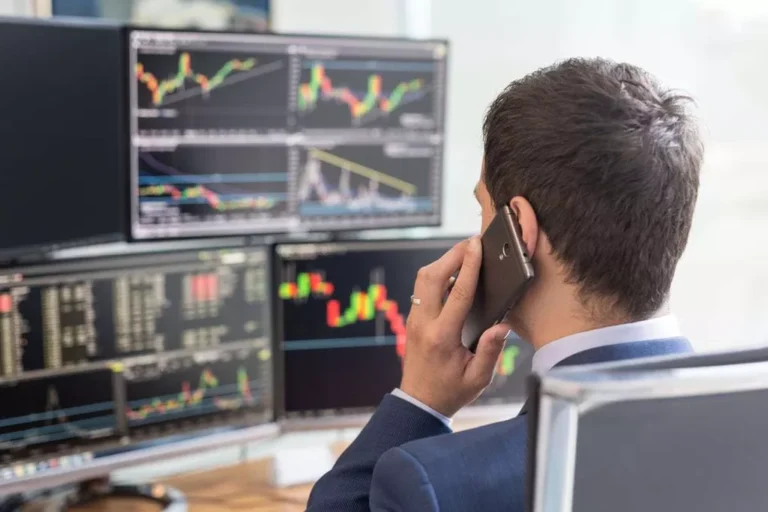In most cases, crypto exchanges offer a far wider range of available cryptocurrencies, as traders can connect with each other directly. With brokers, the type of crypto trades available depends on the broker, so they are usually a lot more limited. You will be able to trade most major forms of cryptocurrencies with brokers. This is why it’s important to understand exactly what form of crypto you plan on trading before joining a brokerage. Many crypto brokers also offer Forex and CFDs on stocks, indexes and commodities apart from cryptos, so you need to see how big is the crypto offering if you know this is what you will be trading. If they say they are a crypto broker but only offer Bitcoin, Ethereum and Litecoin, well, that’s not really a crypto-oriented broker.
How well the company is doing also determines the value of your shares. Since many cryptocurrencies are difficult to trace, it is far easier to set up a cryptocurrency exchange that doesn’t take your consumer rights into account. The older cryptocurrencies get, the easier it is to spot certain types of scams, but traders should always be cautious.
You’ll need to register and open an account before you can begin to familiarize yourself with the platform’s features. Just like with a centralized crypto exchange, you’ll also first need to deposit funds on the platform before you can open a position. Leading forex platforms typically provide a demo trading option where you test your strategies, make mistakes, and learn without risking your own funds.
Where to Buy and Trade Crypto
Many believe that a diversified portfolio can deliver more stable returns over time, as a fall in some assets is balanced by a rise among others — in theory. As such, traders may prefer to combine a combination of stocks, crypto, and forex into their portfolio to achieve diversification. As always, careful and thorough due diligence must always be step one when building your diversified portfolio. Crypto trading is a high-risk, high-reward option that requires a deep understanding of blockchain technology and the cryptocurrency market. On the other hand, forex trading is a more stable and predictable option that requires knowledge of global economics and politics.

Now, with a deeper understanding of crypto brokers, let’s discuss cryptocurrency exchanges. In the scope of facilitating trades, cryptocurrency brokers may also provide the service of holding cryptocurrencies for their customers. Bitpanda, for instance, supports users who prefer not to hold their cryptocurrencies using a third-party wallet.
CFD trading means that we do not actually buy BTC or other crypto assets from the crypto broker. DISCLAIMERThis article does not constitute investment advice, nor is it an offer or invitation to purchase any crypto assets. For beginners and experts alike, cryptocurrency trading can https://www.xcritical.com/ be a complicated practice. Everyone seems to have different opinions on how to trade and it can be confusing to find the “right” way to trade crypto in all the online chatter. Two major factors that distinguish different exchanges are the fees and the currency pairs they offer.
Stock Broker vs. Cryptocurrency Exchange
But this compensation does not influence the information we publish, or the reviews that you see on this site. We do not include the universe of companies or financial offers that may be available to you. Most brokers require their users to complete Know Your Customer (KYC) verification when signing up. This is a process that typically requires users to submit a photo of their government-issued photo ID (i.e. a driver’s license or passport).

Of course, to do this, they will need to purchase crypto through another exchange or broker and then send it to the new wallet address of the exchange. This requires multiple transactions, orders, and transfers which can result in many additional fees and charges. Brokers usually offer several investment options, and crypto exchanges have started doing it too. In staking, traders basically donate a particular crypto asset to some promising project on a blockchain in exchange for some reward. Leading exchanges are also beginner-friendly because you can buy crypto with fiat currency, including bank transfers, debit cards and credit cards. This is especially common on major centralized cryptocurrency exchanges like Coinbase and Gemini.
The most well-known exchange market is the New York Stock Exchange (NYSE), which is located on Wall Street in New York City. When you buy or sell stocks through a broker, the broker is actually buying or selling the stocks from or to another party. When you buy or sell stocks on an exchange, you are buying or selling the stocks directly from or to other market participants. In most cases, brokers purchase large amounts of cryptocurrency from one or more crypto exchanges and then sell them to their own users.
What are the main differences between stock and cryptocurrency exchanges?
Cryptocurrency trading and forex trading are two popular investment options in the financial world. Cryptocurrency trading involves buying and selling digital currencies like Bitcoin, Ethereum and Litecoin on a decentralized digital exchange. Binance is a specialized trading platform that allows you to buy and sell digital currencies, including the largest such as Bitcoin and Ethereum, but also dozens of other much smaller coins, too.
- Miranda lives in Idaho, where she enjoys spending time with her son playing board games, travel and the outdoors.
- This is especially true if you plan to focus on “blue chip” cryptos like Bitcoin, Ether, Solana and Litecoin.
- Cryptocurrency trading comes with its own set of pros and cons, and it’s essential to understand them before deciding to open positions in this market.
- In order to work towards maximising trading success, savvy traders utilise API trading technology and trading bots that facilitate automated trading.
- A commodity exchange is an exchange where various commodities and derivative products are traded.
- Given their maturity, stock exchanges have high volumes and diversity of trade.
Forex trading involves buying and selling different currencies on the foreign exchange market. The foreign exchange market is the largest financial market in the world. See how many cryptocurrencies the crypto exchange offers, what trading pairs there are, fiat pairs will be a plus. While crypto exchange vs trading platform some traders like to own the currency directly, others turn to the futures market. Futures may be an even more attractive way to play the volatility of digital currencies such as Bitcoin, because they allow traders to use leverage to magnify their gains (but also magnify losses).
Direct Trading
As already mentioned, we exchange CFD contracts when using a crypto broker. Every time we purchase, let’s say, a Bitcoin, we enter into a Contract for Difference with the broker, agreeing that if the value rises, we take the profit. On the other hand, we will lose that price difference if the BTC’s worth drops. When choosing a crypto broker, you should verify their credentials and make sure they are competent and secure. Your broker should have state-of-the-art security systems in place and operate in compliance with national current regulatory measures for financial services providers.

A trader is someone who takes on risk by buying and selling securities in order to make a profit. Traders can be either individuals or firms.They often use leverage in order to increase their potential profits (and losses). Cryptocurrency exchanges and cryptocurrency brokers both present great avenues to buy and sell various cryptocurrencies. In this guide, we will take a look at the main differences between crypto exchanges and brokers so that you can figure out which is better for your needs. Whether you choose a crypto broker or exchange really just depends on how experienced you are in trading, what types of trades you plan to do, and how much risk you’re willing to take on. Generally, crypto exchanges are more suitable for experienced traders, while brokers are a smarter choice for beginners.
Advantages and disadvantages of crypto brokers
Finding a regulated broker to trade legally in your country can be tough. Our Bitcoin ATMs and CDReload locations make it easy to buy Bitcoin quickly and securely with cash. Once you’ve found a Bitcoin ATM or CDReload location, deposit cash, and then receive your Bitcoins. With Crypto Dispensers, buying Bitcoins has never been more convenient. Note that CFD may be similar to a contract agreement, yet there is a significant difference. When dealing with a CFD, the seller does not have to hold a specific asset.
In order to work towards maximising trading success, savvy traders utilise API trading technology and trading bots that facilitate automated trading. Look for an exchange that offers API integration for users to connect their trading bots. What’s also a fact is that there are tens maybe hundreds of brokers and exchanges that offer cryptos, so finding one shouldn’t be a problem. However, finding one that fits all your requirements can prove a bit more difficult.
A broker-dealer is a person or firm that buys and sells securities for its own account in the market place. Broker-dealers act as agents on behalf of their clients, charging a commission or mark-up for their services.They may also buy and sell securities for their own account in the secondary market. Crypto brokers, on the other hand, are companies that act as intermediaries between buyers and sellers of cryptocurrencies. Crypto exchanges offer a more direct way to trade cryptocurrencies. However, they typically charge higher fees than brokers and may not be available in all countries.
